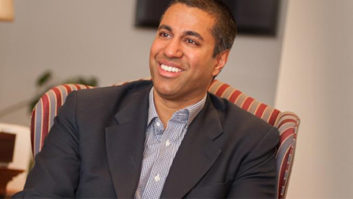WASHINGTON � The topic of net neutrality has been in the news and trades quite a bit as of late. We�re covering the topic in Radio magazine today for two primary reasons:
- As a user of the internet, your experience in doing so may change and
- As a broadcaster (assuming you are involved in streaming) your access to listeners could potentially change.�
To help further stress the importance of net neutrality, here are a few scenarios, as presented by Ars Technica, that �might be possible,� if ISPs give up on the attempt to be neutral internet providers:
- Perhaps you’ll one day have to pay your ISP for access to a favorite website, or perhaps the sites themselves will need to pay to access users. Pay up, or the site will remain slow.
- Perhaps your ISP, under pressure from various industries, simply begins blocking various websites � say, a file-sharing website that some people use for piracy but which you use to share multitrack mixes with your band. Is that a decision you want an ISP to be making?
- Perhaps you’ll have trouble watching your favorite video service � not because your ISP has blocked it, but because your ISP limits streaming video bandwidth within its network… which might just happen to benefit its legacy cable TV or IPTV system
�Under current net neutrality rules, ISPs must generally deliver broadband service without blocking or throttling certain content, and without prioritizing other content in exchange for payment from websites. Absent net neutrality protections, however, we suspect this restraint won’t last, especially in areas with little real competition. The experiments in messing with your internet connection will be subtle at first, but absent massive consumer backlash, will certainly gather steam,� according to the same article.�
In other news of concern to users of the internet, China has reportedly told its three nationwide carriers that within seven months they will need to suspend customers� access to major websites hosted outside the country. Google, Facebook and U.S. news sites are currently available to Chinese citizens who access them via virtual private networks, but the government is reportedly set to crack down on carriers who do not suspend access to VPNs by Feb. 1, 2018, according to rcrwireless.com.
The router �blockades� the government enforces are known as the Great Firewall. In the spring of 2016, the U.S. government labeled the Great Firewall as a trade barrier for the first time in three years, and the U.S. trade representative said internet blocking in China was getting worse, with eight of the world�s 25 most highly trafficked sites banned in China, according to the same article.�
�







